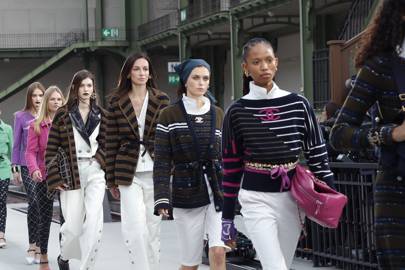“Chanel is not preparing for an IPO (Initial Public Offering), I just want to reconfirm that for the hundredth time this year,” he told Business of Fashion. “The numbers we’ve shared show that our strategy is exactly the opposite of a company preparing for a sale or an IPO. We’ve increased our level of investments... to prepare for the long term. We’ve increased our head count ahead of the curve at the risk of slightly eroding our short-term margins, which we don’t care so much about, to prepare for the long term. That remains our strategy.”
The brand did not touch upon the death of its long-standing creative director, Karl Lagerfeld, whose memorial will be held on June 20, or his successor, Virginie Viard – but the recent valuation estimates signify that the label’s desirability has not diminished. “It really confirms what everybody knows, which is that we are the most desirable brand in the world,” Blondiaux said. “Being independent is part of our DNA and probably a key condition for our success. Unfortunately for many bankers, we will remain a fantasy, but that’s what nice brands are about, creating dreams.”

With regards to specifics on the company growth trajectory, Blondiaux said that “human interaction will remain central to the relationship between the client and the brand.” In 2018, Chanel employed more than 3,000 new staff members, many of whom were assigned to global stores. The company remained adamant that high fashion, watches and fine jewellery would not be sold online, despite the increased digitalisation of its competitors.
Chanel said it was “cautious but confident” that the impending outcome of Brexit would not impact the business, owing to its global status. In 2018, sales in the Asia-Pacific region rose by 20 per cent year-on-year to $4.7 billion. Growth in the region surpassed Europe for the first time, where sales rose eight per cent to $4.3 billion. In the US, sales increased by seven per cent to $2.1 billion.
Chanel made its annual results public for the first time in its 110-year history last June, when it announced sales of $9.62 billion, up 11 per cent from 2016. The decision was born out of Blondiaux’s belief that the lack of fiscal information had led “to the circulation of false or misleading information.”

No comments:
Post a Comment